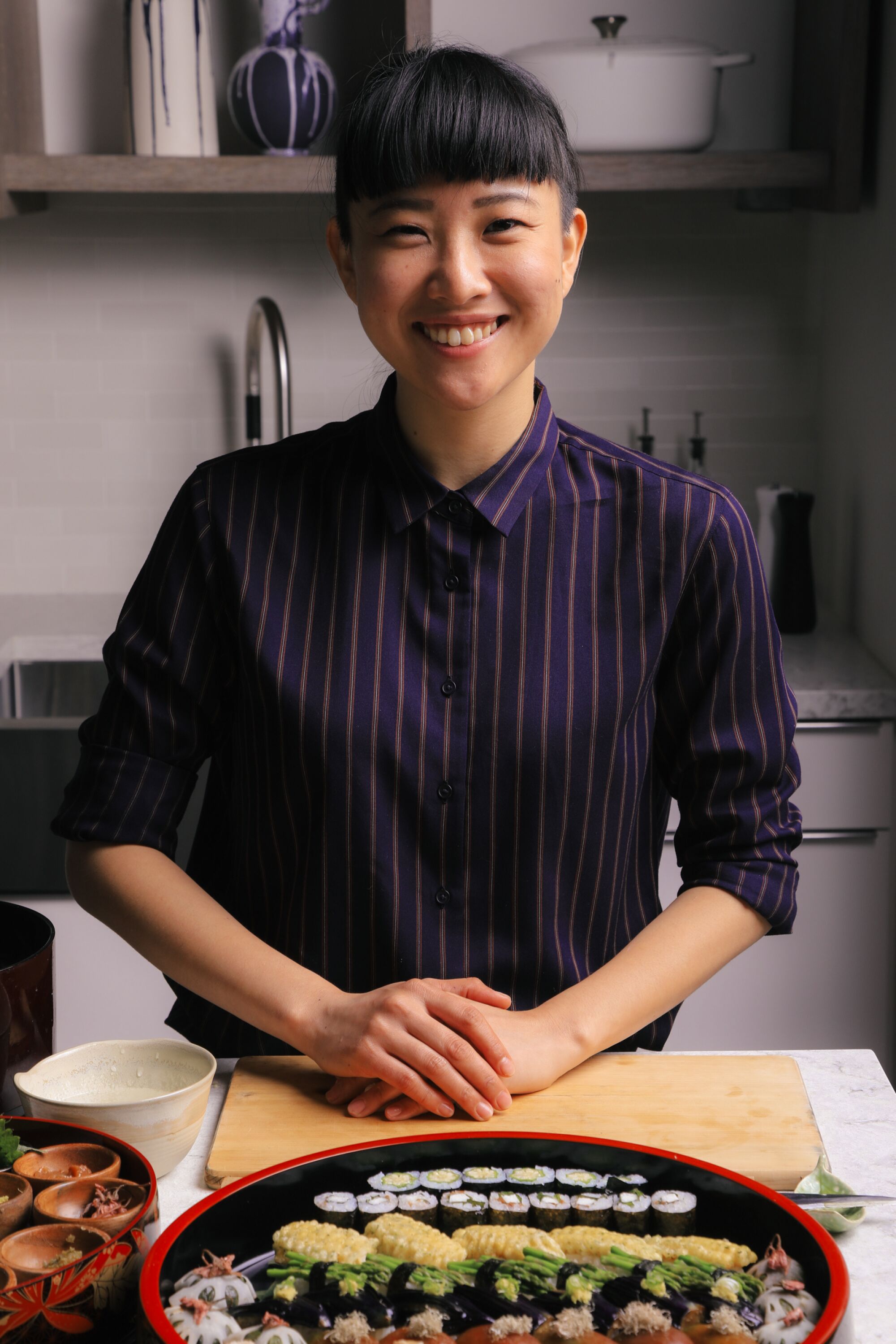From latimes.com
rowing up in Saitama, Japan, Yoko Hasebe didn’t dream of sushi. From the age of 7, she studied ballet and later jazz dance at the Nihon University College of Art in Tokyo. Fate brought her to California and a series of jobs at Japanese restaurants, where she found her way into the kitchen, rolling maki alongside sushi chefs such as Kimiyasu Enya at Enya and Morihiro Onodera of Morihiro.
“I loved being in the kitchen,” says Hasebe, 29. “At first I didn’t think I would be able to do both — being a dancer and a chef — but I try anyway.”
Between auditions, she learned to make rolls and how to cut fish and eventually prepare nigiri sushi for omakase menus. In 2018, when more and more customers began asking for vegetarian options, Hasebe was asked to design vegan sushi. The requests planted the seed for her future.
“People were asking for it so much,” she says. “We had a couple vegan rolls and they were popular, but not any nigiri,” referring to the hand-shaped style of edomaezushi, the most highly regarded type of sushi — seasoned rice traditionally topped with raw or preserved fish or other seafood. She traded mackerel for mushrooms, toro for tomatoes, octopus for okra.
Hasebe was at the forefront of a trend. Since just the beginning of this year, two vegan sushi restaurants have opened in Los Angeles. Niku Nashi opened in February inside Melrose cocktail bar APB, with menu options such as a spicy “no tuna” hand roll and a dragon roll with cream cheese, asparagus, seared “no eel” and avocado. As of January, Kusaki is L.A.’s first vegan omakase sushi restaurant. And extensive selections of vegan sushi are served at restaurants such as Ichijiku Sushi in Highland Park, Fiish in Culver City, Vegan Castle in Long Beach and Ma-Kin in Agoura Hills.
Hasebe is the vegan sushi chef behind Plant Sushi Yoko, which she quietly launched as a delivery and pickup service in 2020 after losing her restaurant job at the start of the COVID-19 pandemic and wanting to operate her own business. For Hasebe, it’s less about a trend and more about chisan-chisho, a local-food approach that started as a grassroots movement in Japan in the ’90s in response to agricultural globalization. The phrase means “produced locally, consumed locally,” but the concept also puts an emphasis on environmental stewardship and community identity.
“We have so many great vegetables, I want to use the ingredients that are from here,” she says, “instead of having fish shipped from Japan, which is amazing that we can do that, but I think vegetables speak of California.”
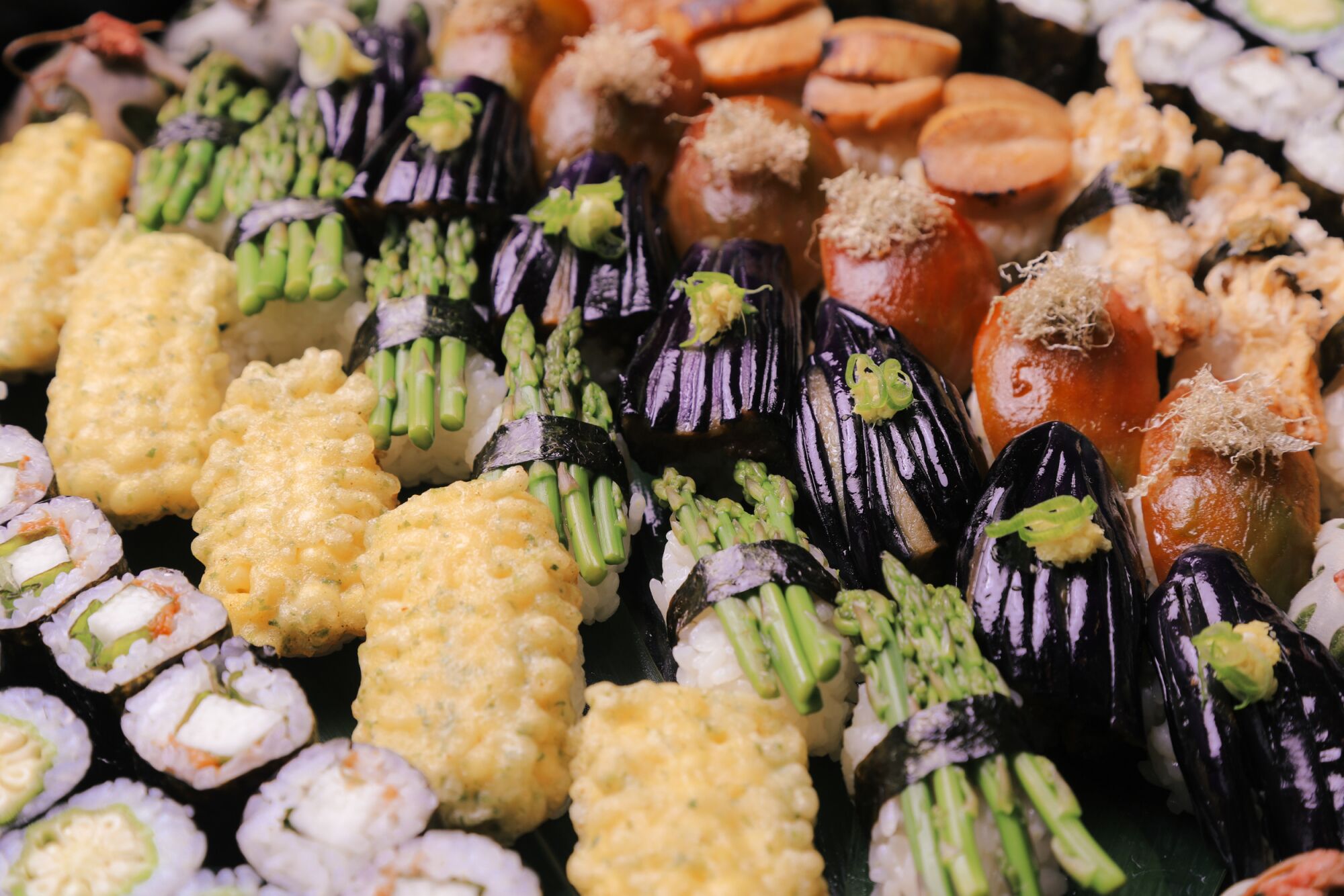
“This is what a female sushi chef does.” Above, a vegan sushi platter by chef Yoko Hasebe, photographed at the L.A. Times Test Kitchen.
(Ricardo DeAratanha / Los Angeles Times)
Entirely plant-based sushi in L.A. has its roots in Little Tokyo, where restaurant Shojin has served a macrobiotic menu, including vegan sushi, since 2008. The history of vegetarian maki (or all maki sushi), by some accounts, goes back to Buddhist monks in 13th-century Kyoto who devised a technique for rolling their food in dried seaweed.
But Plant Sushi Yoko is thoroughly of the moment.
Hasebe is standing in her kitchen, gently shaping an ingot of sushi rice for nigiri in the palm of her right hand. On the counter in front of her is an array of ingredients and prepared neta, or toppings. Slivers of Fuji apple flank slices of tofu that Hasebe smoked over apple wood. Coins cut from the thick stems of king trumpet mushrooms are butterflied. Corn, sheared from the sides of a cob so that the kernels remain attached to one another in filets, are battered and fried. She bundles asparagus that are thinner than pencils on top of rice, attached with a slender belt of seaweed.
“I used to put a lot of stuff on top of sushi. Yuba with cheese and avocado. Or mango with daikon and chile. Truffle oil. Things like that,” she says. “But it has to be more simple. If you put too much, it’s not wrong; customers wanted that. But I wanted to focus on the flavor of the vegetable, appreciate the raw ingredient for what it is.”
No one would call it traditional, either. “When I started out, I asked, ‘How can I evolve sushi that’s made by a female chef?’ I wanted to make a statement, ‘This is what a female sushi chef does, this is what I do.’ It had to be different.”
Naoko Takei, author and owner of Japanese cookware store Toiro, has worked with Hasebe during cooking demonstrations. “She understands the sensitivity of each ingredient and how to pull out the flavors instead of adding the flavors. She doesn’t try to mimic anything, she presents them as original. Now I tell my friends, ‘I know a dancer who makes the best vegan sushi in L.A.’”
For Hasebe, it’s also deeply personal. “I became obsessed with eating and cooking because of body image issues,” she says. But sushi became a passion the moment she handed her first nigiri directly to a customer. “To make something in your hands, give it to someone and see them eat it right in front of you, that’s a connection.”
Now that it’s spring she’s looking forward to using takenoko, the young sprout that grows from bamboo’s underground stem. “And okra, it’s the perfect texture right now for sushi,” she says, “It’s not too crunchy and stiff, perfect with the rice when you chew it.” Artichokes and beets: “I’m trying to figure out recipes for those.”
Vegetables have more variety and more texture than seafood, Hasebe says, and most vegetables go well with sushi rice. “I don’t think I’ve come across a vegetable that I don’t like with sushi rice,” she says. “That’s what I love about it, and I think that’s what people love about it too.”
Yoko Hasebe, pictured at the Times’ Test Kitchen, will be popping up at downtown market Sesame LA on May 20.
(Ricardo DeAratanha / Los Angeles Times)

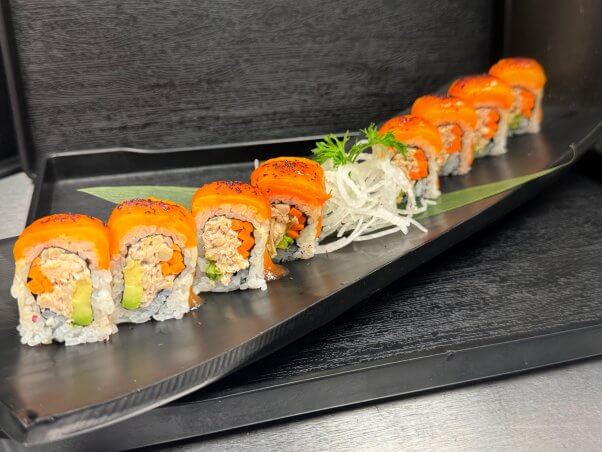
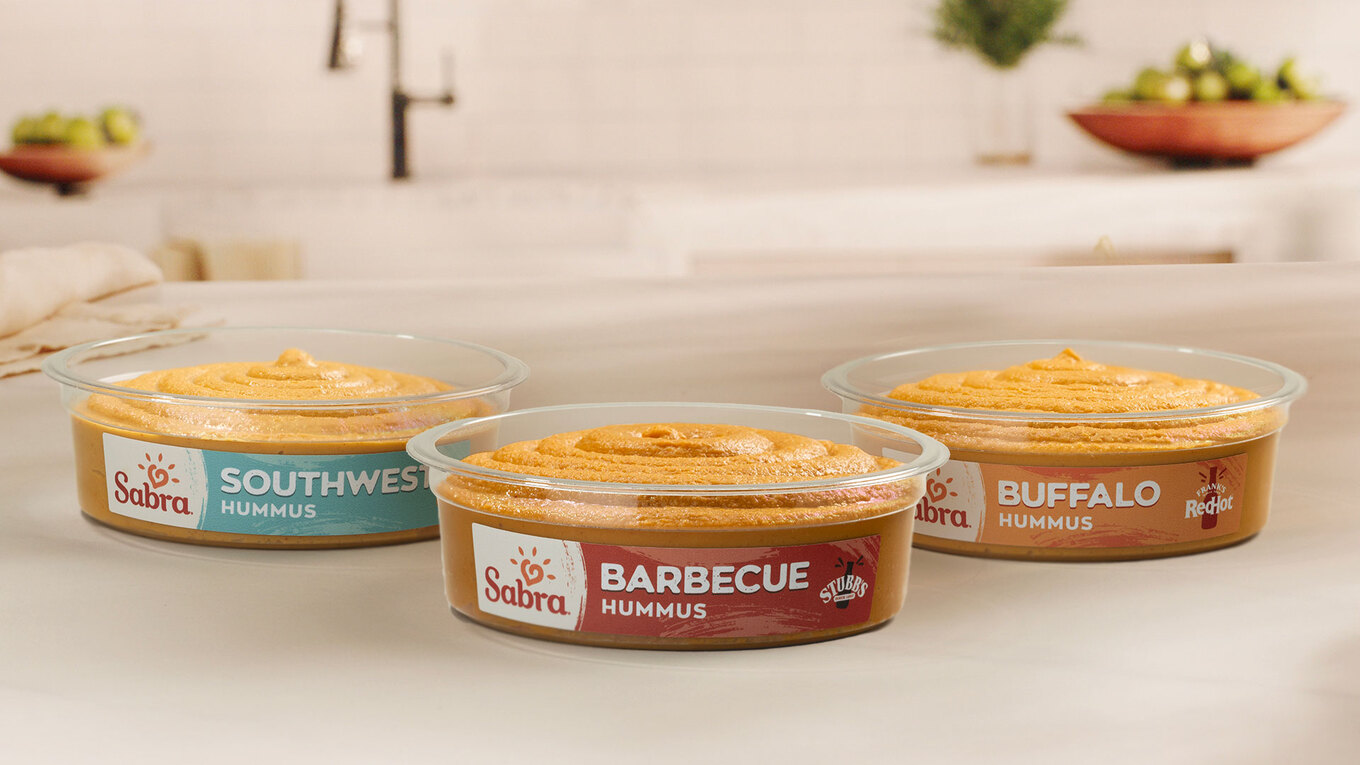 Sabra
Sabra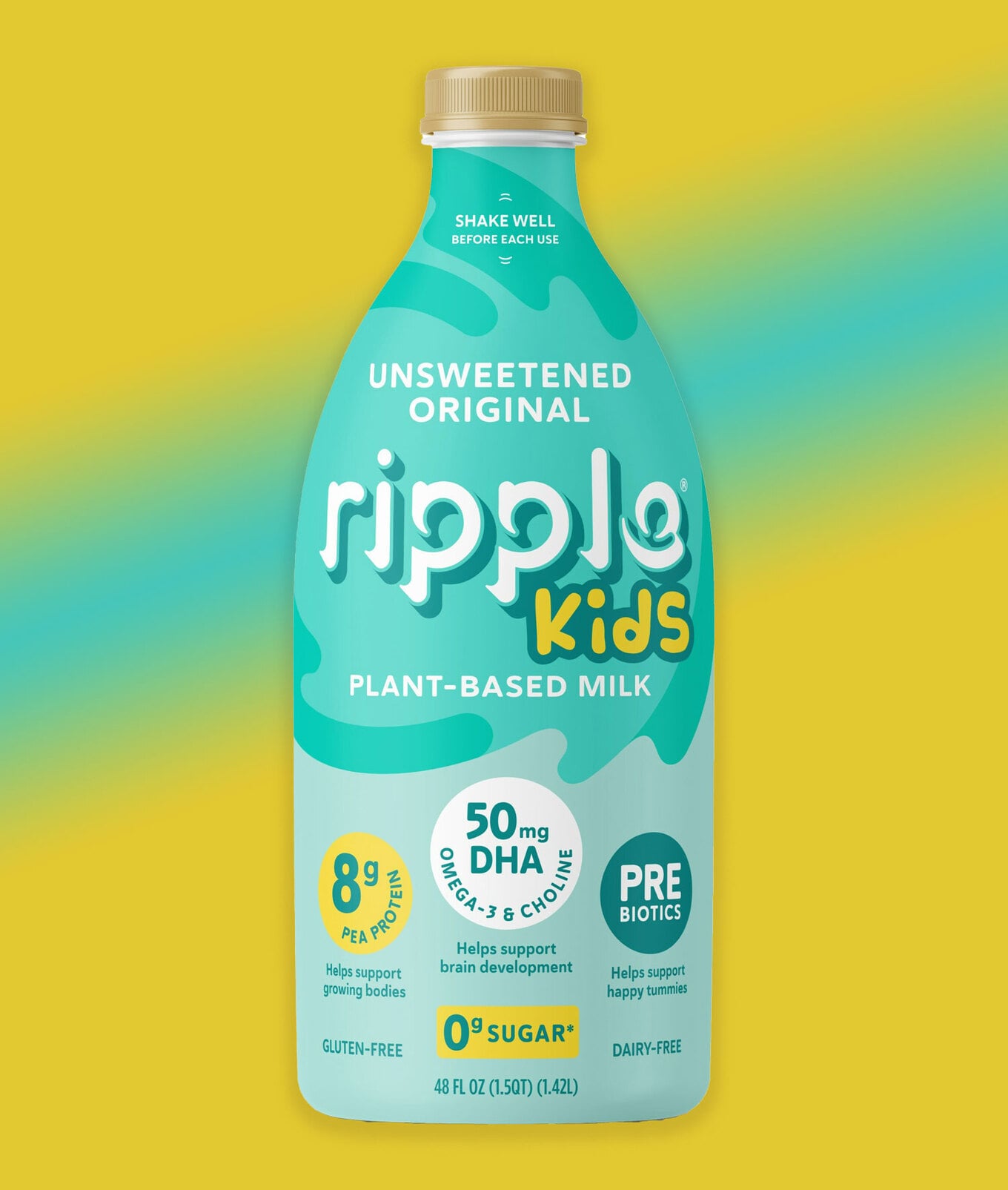 Ripple Foods
Ripple Foods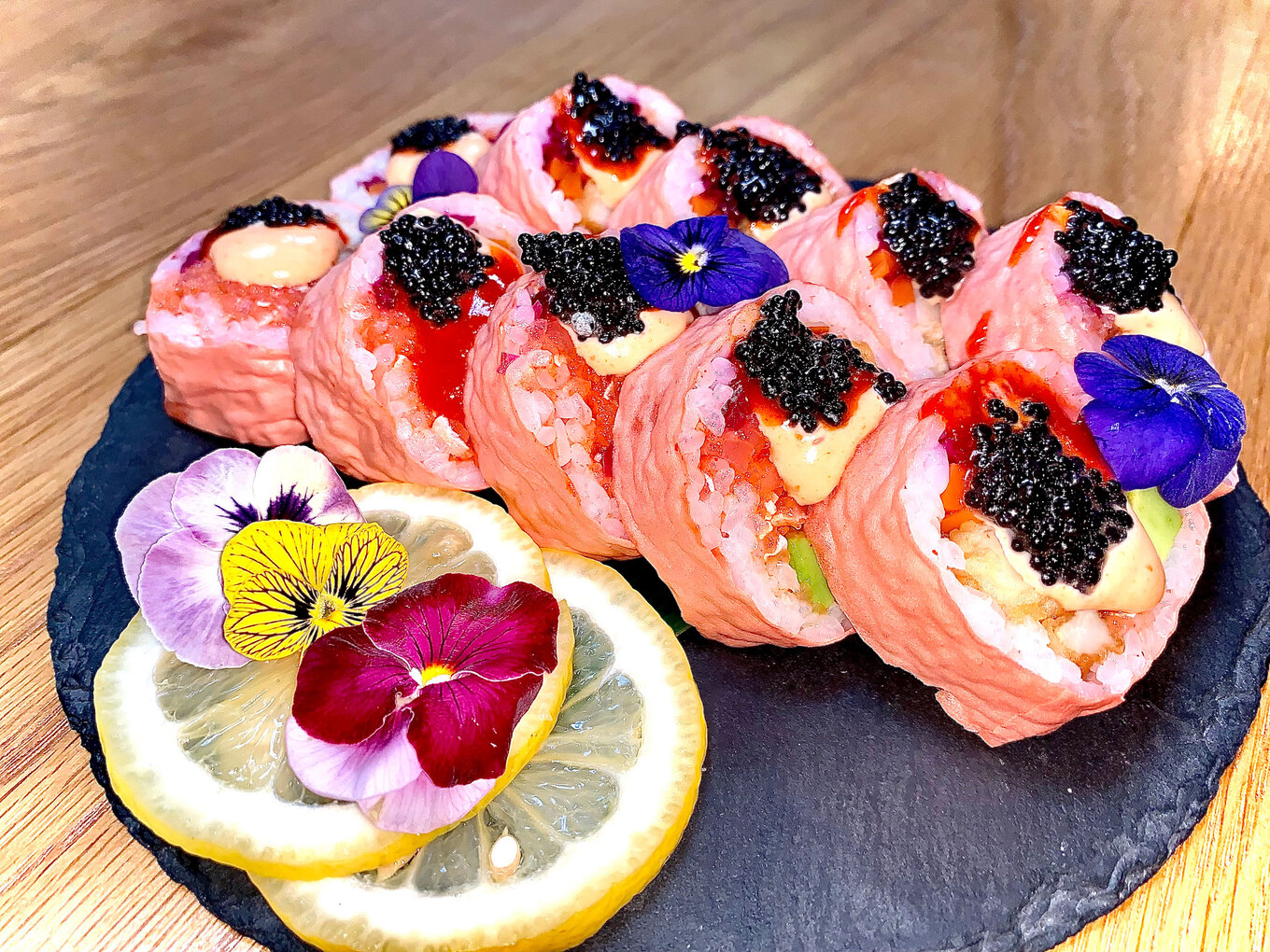 Niku Nashi
Niku Nashi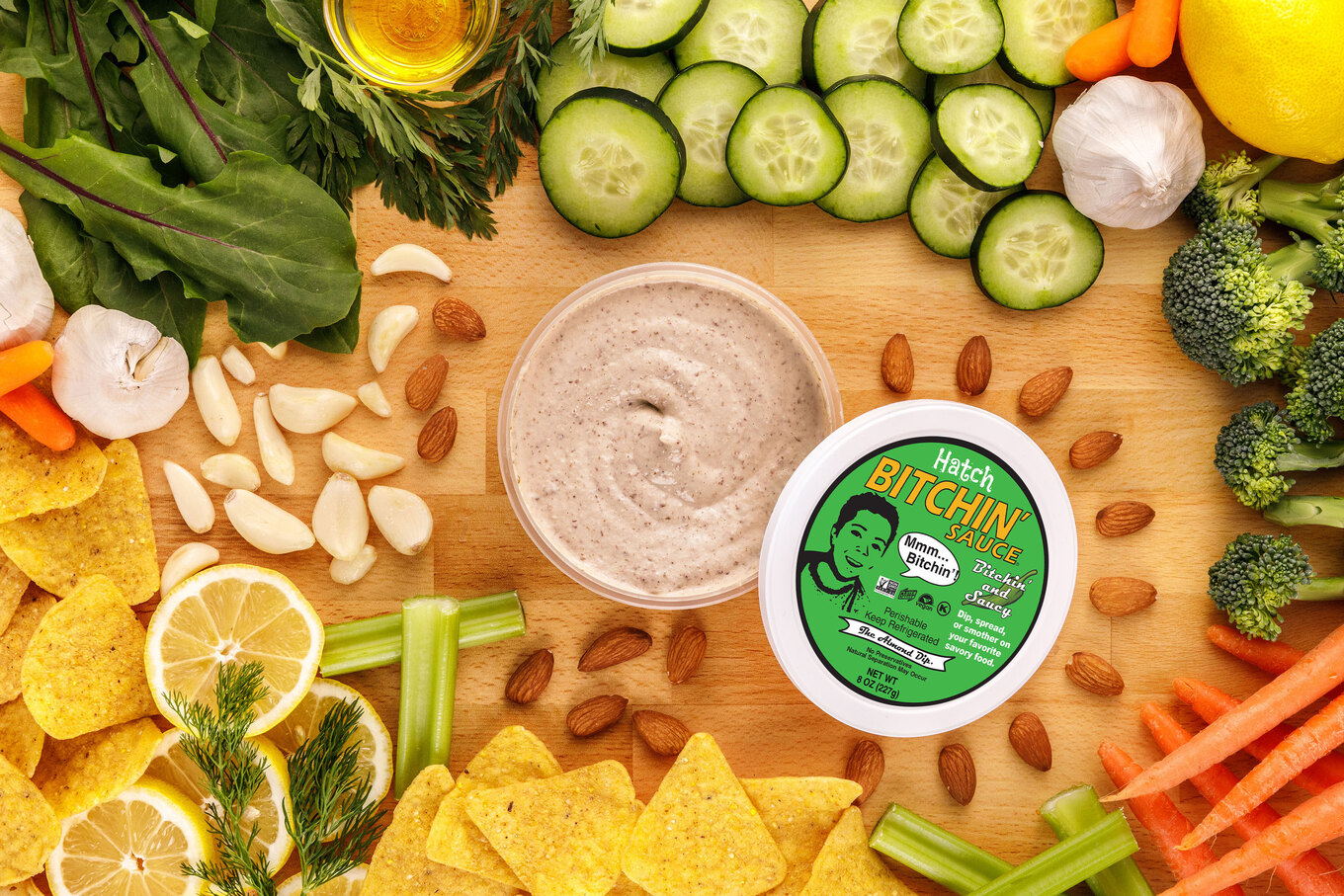 Bitchin’ Sauce
Bitchin’ Sauce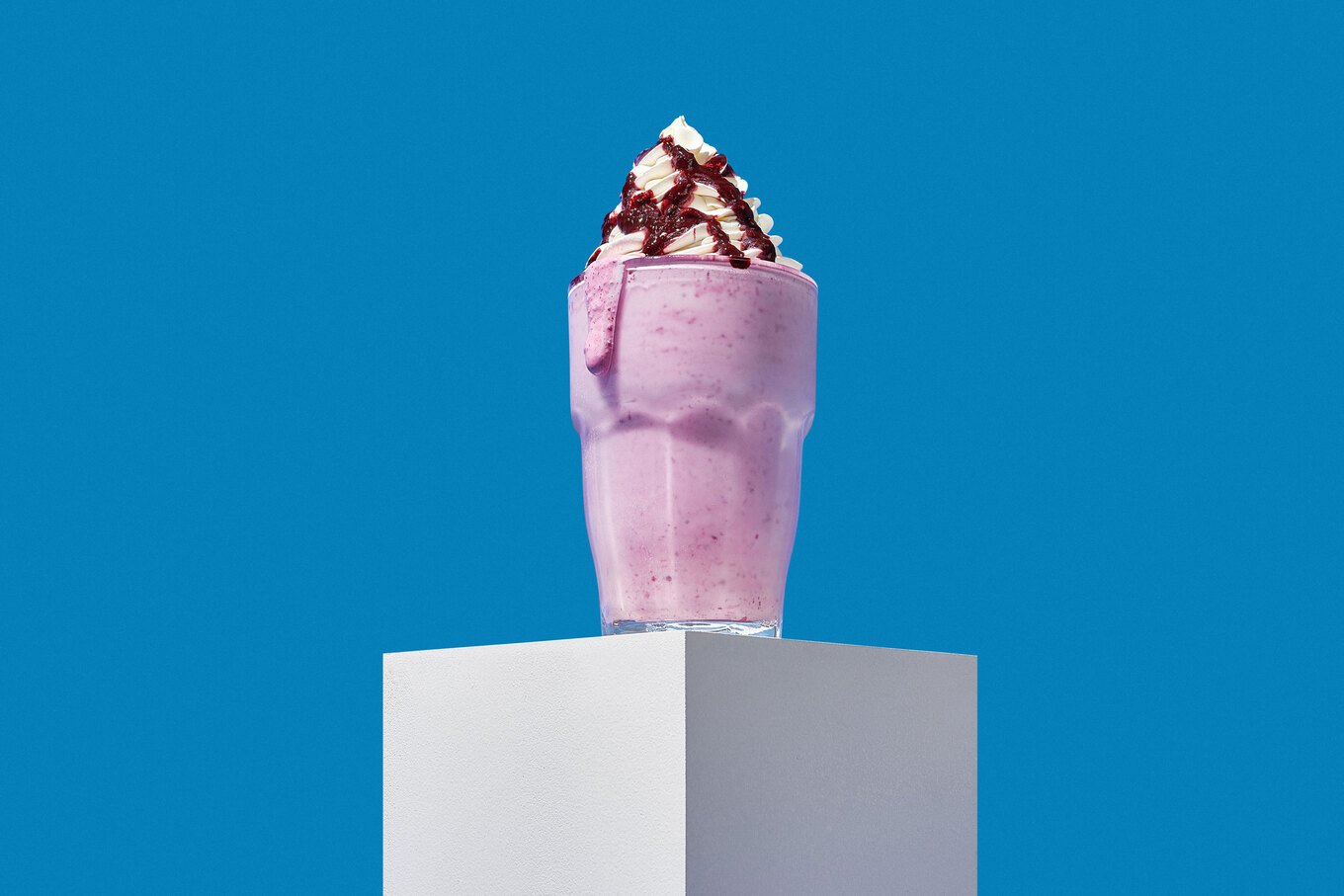 Burgerville
Burgerville



